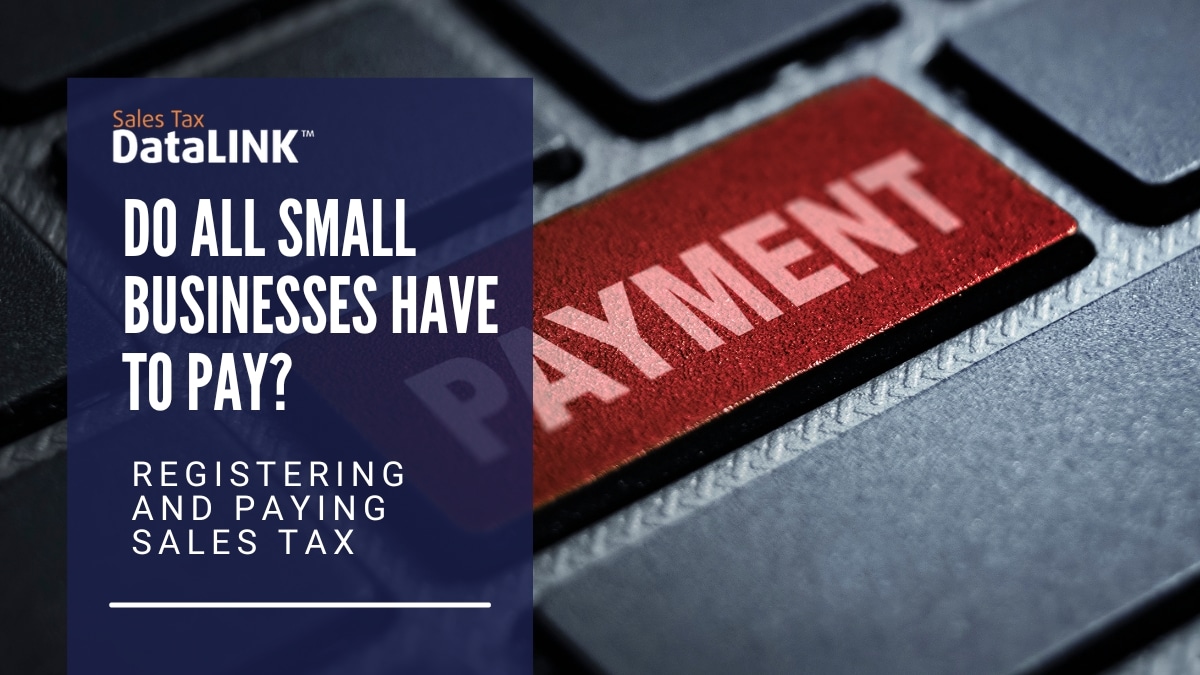Sales tax plays a major part in running a small business (or any business), whether you understand all the rules or not. That lack of knowledge can quickly cause problems for business owners who abide by incorrect or outdated sales tax laws. If you’ve come looking to see if your business should be charging and paying sales tax the answer is most likely yes. And if your head is spinning just thinking about sales tax and how your business will handle it, here’s how to get started.
Registering For and Paying Sales Tax
How often you sell or how much you charge for goods and services does not usually decide whether you need to register for sales tax. Each state is different but normally if you are selling taxable goods or performing taxable services you will need to register your business.
Nearly all businesses that work with sales are required to pay sales tax. These taxes are required by the state the business is operating in as well as the states where they do business.
When it comes to businesses operating online, e-commerce sales tax laws are still commonly misunderstood. The general understanding is that internet businesses must charge sales tax for customers in the state where the business has a physical presence. For example, if you are in New Jersey, you charge sales tax to customers living in New Jersey. However, if you have your main business in New Jersey, a warehouse in New Mexico, and a call center in Texas you must charge sales tax to customers from all three of those states.
Possible Exemption From Sales Tax
There are many misconceptions about who has to pay sales tax and who is exempt. The truth of the matter is there is no definitive list, each state is different. Every state has requirements that businesses must meet before they are considered tax-exempt and you shouldn’t just assume that your business has exemptions without doing research for your local area.
Universal sales tax exemptions are few, and far between, and will not be discussed in this article. The following are general indicators of possible tax exemption and should not be taken as confirmation of exemption.
- Casual Sales: In most states, the occasional garage sale shouldn’t have you running to file sales tax. However, if the hobby grows into a business and the income becomes constant you will need to begin charging, and filing, sales tax. Be wary of assuming casual sales mean you’re exempt, however, as this isn’t the case in all situations!
- Nonprofit Sales: In many cases, sales to nonprofit businesses are sales tax exempt. Remember, however, that your business still needs to keep an exemption certificate on file for any nonprofit sales.
- Manufacturing Sales: If you produce and sell goods that are raw materials (i.e. used to make other goods) and the buyer has an exemption certificate, these items can be considered sales tax exempt. In such instances, you will need to keep certificates as proof of your exemption.
- Some Services. Every state has a different tax code around services, and some are not taxed. Be sure to check your local laws, as laws are always changing, but you may be exempt.
Failure to comply with prevailing sales tax laws is a very serious offense with dire consequences, even if it is an accident. Before you stop collecting sales tax, ask a tax professional if they think you have an exemption. Sales Tax DataLink offers free evaluations to customers who are looking to ask questions. You can also outsource the process to us and we’ll find your exemptions and file for you.




